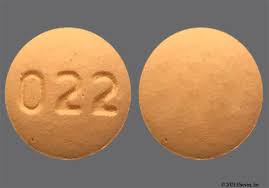Having a pharma pipeline database could greatly improve drug development, as it offers detailed information about drugs in the pipelines, clinical trials and market trends on top of everything. Pharmaceutical research is a competitive industry, and the quicker data can be accessed and analyzed, the better you are able to make informed decisions in real time—ultimately optimizing resources and speeding up development. McKinsey has also reported that advanced data analytics in drug discovery can save up to 30% development timelines and increase success rates by as much as 15-20%, illustrating the importance of such tools.
Search for such database that unifies mountains of industry-specific data: drug efficacy, safety profiles (near and distant), clinical trial phases…and the list goes on. These databases are vast and may have thousands of drug candidates across hundreds if not even more broad disease categories. For example, Synapse offers intelligence on over 40,000 pipeline drugs to enable companies tracking competitor activities and identifying partnership opportunities [25][26] or duplications in R&D. Such visibility enables companies to plan where best in the world to place their drug candidates and adjust their R&D strategies accordingly.
Clinical endpoints, biomarker validation and mechanism of action are all examples of industry-specific terminology which is necessary to the operation these databases. A pharma pipeline database has filters and analytics that can enable users search for drugs based on these criteria. So, as an example if someone is developing an oncology drug targeted for a specific biomarker and that company wants to actually see what other drugs are there among similar lines of treatment under development in the pipeline or what kind of trials have they undergone etc…whether those drugs really work well…cure e.t.c., then they could search up this information from such databases. Well directed information gathering in this way improves on decision making and resource allocation.

How such libraries can potentially shape drug development is illustrated by the breakneck pace of COVID-19 vaccine discovery. Pfizer and Moderna used data-driven platforms available for competitors, to track the ongoing progress of their competition in respective areas., they also helped them validate emerging research,use collected datasets to design clinical trial protocols. These companies used full pipeline databases to remain abreast of recent advancements in science and technology enabling them to deliver their vaccine candidates with unprecedented turnaround times, highlighting the significance of real-time data for life-critical drug development.
Entrepreneur and awesome bio tech investor Vivek Ramaswamy puts it more bluntly: “In the world of pharma today, he who can be patient quickly wins. Evidently, this view demonstrates the ever-increasing need for pharma pipeline databases that offer valuable information to expedite drug development cycles and boost overall project success rates.
The second most important advantage of outsourcing is cost-efficiency. Conventional methods, which required manual data collection and analysis are labour-intensive and costly. Access to a comprehensive pharma pipeline database makes this process much easier, throwing up custom reports and near-realtime project updates. Advanced data platforms such as AI lets companies see a 20 per cent saving in total R&D costs from improved resource utilisation and accelerated decision-making (Deloitte) Such savings are essential in a sector where developing new drugs can cost upwards of $2.5 billion and 10 years to return one product to market.
Some offers will propose this type of tools which are perfect solutions for pharmaceutical companies.Frameworks like pharma pipeline database contain all the necessary standardised informationufig speziell auf die Bedürfnisse der Pharmaindustrie zugeschnitten sind. These platforms also track drug development, while providing real-time analytics to identify key market opportunities and significant risks — offering strategic pathways for success.
In summary, a pharma pipeline database drives drug development with fast, accurate and holistic data to inform strategic decisions in real time, increasing efficiency while cutting costs. In a rapidly evolving pharmaceutical industry, this is critical for those companies that seek to stay competitive and launch innovative therapies shorter and more effectively.